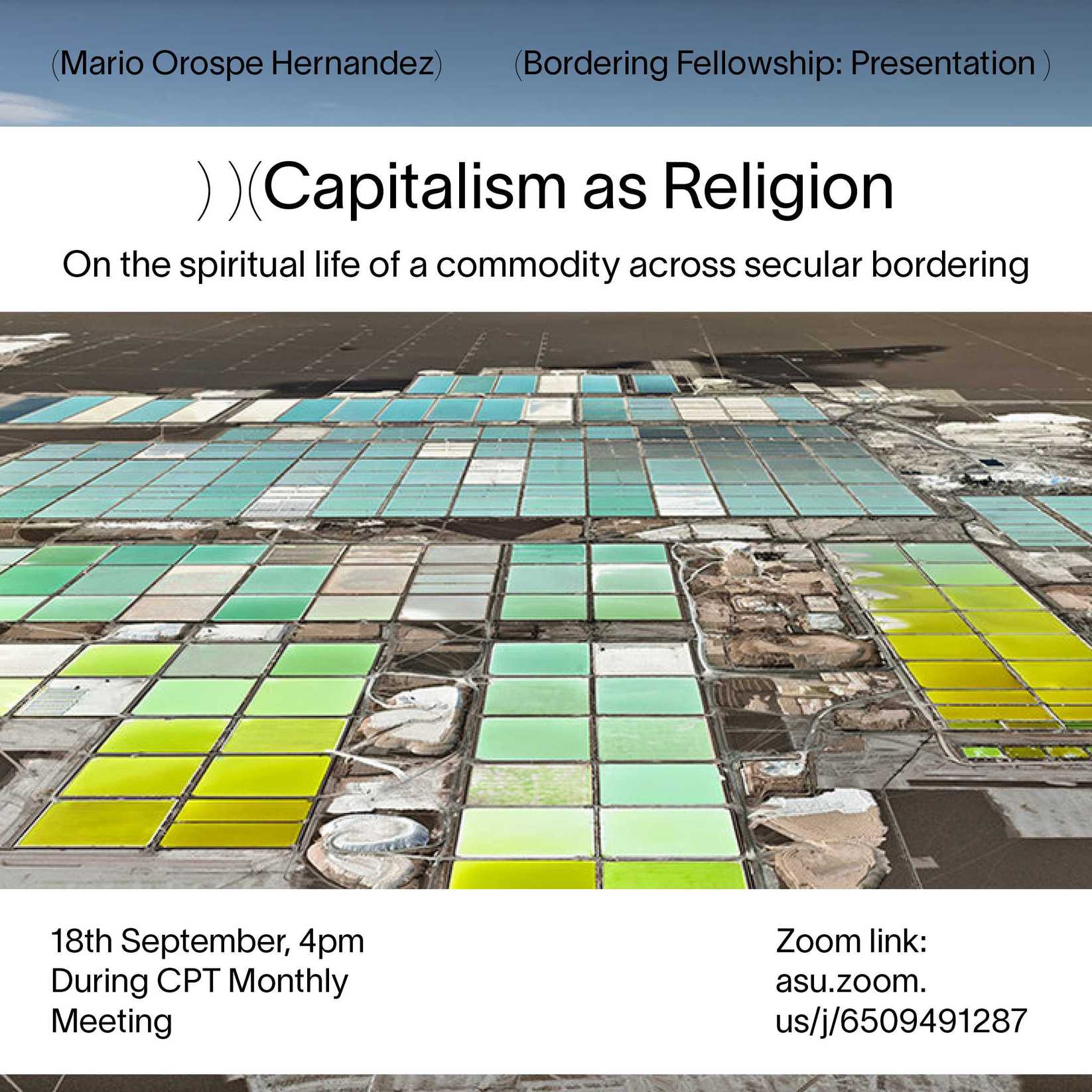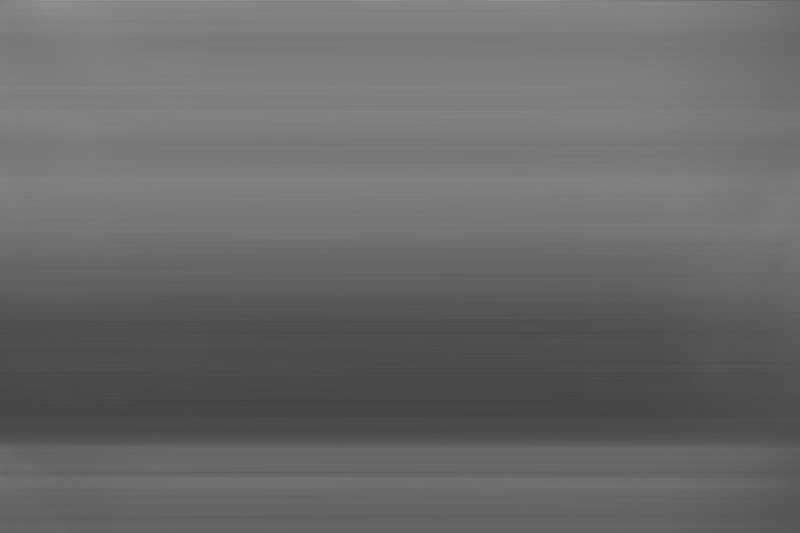(Speakers)
Mario Orospe Hernandez
(Techniques Speaker Series)
Bordering
(When)
September 18, 2020
4 pm
(Location)
Zoom Meeting
(Calendar)
+Google
I am currently a PhD student in Religious Studies at Arizona State University. I have earned a master’s in Philosophy and a bachelor’s in Political Science at the National Autonomous University of Mexico (UNAM). I used to work as a professor in the Department of Humanities in Tecnológico de Monterrey, México, where I taught courses in Ethics, Philosophical Thought and Theory of Knowledge. I have obtained the Fulbright-García Robles Scholarship to accomplish my doctoral studies in the United States. I am currently interested in topics around Critical Secular Studies, Critical Theory and Liberation Theology.
Join us to stay updated with the CPT projects and initiatives, get involved, and get to know our current fellows’ research projects!
Capitalism as religion
On the spiritual life of a commodity across secular bordering.
This research project is trying to understand the interrelation between the rise of secular categories for the study of “religion” and the imposition of an entire mode of being on a planetary scale. When an object like Capitalism must be understood as a global order that is permanently in flux, examining such mutability through different borders defines the center of my analysis. If Karl Marx analyzed the logical movement of commodities in their process of valorization, this research would like to contribute to an investigation regarding such movement, albeit now from both a genealogical and an object-oriented ethnography. Thus, this analysis will involve the dissection of the production process of an evocative commodity of our time, the smartphone, which crosses multiple physical and epistemological boundaries during the stages of its life cycle: from its design, resource-gathering, manufacturing, selling, exhibition, consumption and disposal.
It is possible that from a decolonial perspective “religion” should not be assumed as an anthropological universal anymore, but rather as a categorical apparatus pertaining to the colonial project that aimed to classify and conquer numerous ways of life around the world. Yet, at the same time, when we open to this human horizon in its own context and listening to its own terms, what Modernity has derogatory called “religion” could also provide us a powerful insight into the lived experiences and existential meaning-making processes that, in the face of incommensurable forces that surpass humans, are fully embedded in the everyday life of people.

